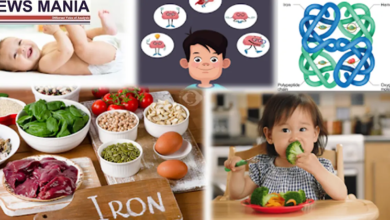7 qualities of a mother which enhances positive attitude of children

News Mania Desk / Piyal Chatterjee / 12th November 2024
Mothers play an integral role in shaping their children’s worldview and, more specifically, their attitudes toward life. The development of a positive attitude in children, often crucial to their resilience, emotional intelligence, and overall success, is largely fostered by parental influence. Here are seven maternal behaviors that profoundly encourage positivity and optimism in children.
- Consistent Expression of Unconditional Love and Acceptance
A mother’s love acts as the foundational bedrock of a child’s self-worth and self-acceptance. When a mother demonstrates her unconditional love, regardless of a child’s successes or failures, she instills a secure sense of belonging and worthiness in them. Children who grow up feeling unconditionally loved are more likely to maintain a positive outlook even when they encounter failures or rejections because they don’t equate external outcomes with their inherent value. Mothers who consistently show warmth and affection help their children internalize the notion that they are valued for who they are, not just what they accomplish. This acceptance fosters a resilient self-esteem and a positive attitude, even amid adversity.
- Role Modeling Optimism and Gratitude
Children learn more through observation than through instruction. When a mother consistently demonstrates optimism, even when facing life’s challenges, children naturally absorb and mimic this behavior. For instance, if a mother reframes setbacks by focusing on potential solutions rather than problems, she demonstrates to her child the power of perspective. Additionally, practicing gratitude—by highlighting the positives in everyday life—helps children appreciate what they have rather than fixating on what they lack. Studies have shown that a practice of gratitude is linked to higher levels of happiness and resilience, both of which contribute to a positive attitude. A mother who practices optimism and gratitude, therefore, imparts these qualities to her child, showing them how to find silver linings and maintain a positive mindset.
- Encouraging Self-Expression and Emotional Honesty
A mother who encourages her child to openly express their feelings, whether positive or negative, helps cultivate emotional intelligence, which is crucial for a healthy, positive outlook on life. By validating their child’s emotions, she teaches them that it’s okay to experience a full range of emotions—joy, sadness, frustration, and everything in between. Rather than repressing difficult emotions, children learn how to process and manage them, which ultimately prevents negative feelings from accumulating. Emotional honesty also fosters self-acceptance, as children learn to view themselves compassionately rather than judgmentally. This understanding and acceptance of their emotional world are essential for maintaining a balanced and positive attitude, especially when they face emotional challenges.
- Instilling Resilience Through a Growth Mindset
Mothers who emphasize the value of effort, perseverance, and learning from mistakes rather than focusing solely on success, help instill a growth mindset in their children. This mindset frames failures not as insurmountable obstacles but as valuable learning experiences. A mother who nurtures resilience teaches her child that setbacks are temporary and that challenges can be overcome with persistence and adaptability. This approach directly influences the child’s attitude toward difficult situations. Children with a growth mindset are more likely to adopt a positive outlook because they view obstacles as opportunities for growth rather than as failures. By encouraging resilience, mothers equip their children with the tools to stay positive and hopeful, even in trying circumstances.
5.Fostering Empathy and Kindness
A positive attitude is often nurtured by one’s sense of connection and empathy towards others. Mothers who encourage kindness, generosity, and empathy help their children understand the value of considering others’ perspectives and supporting those in need. A child who practices empathy is likely to develop a compassionate worldview and a strong sense of social connection. Studies have shown that altruistic behaviors increase feelings of fulfillment and happiness, and children who are kind to others are more likely to feel secure, satisfied, and optimistic. When mothers emphasize the importance of empathy and kindness—whether through their actions or by encouraging their children to engage in acts of kindness—they help cultivate a positive and compassionate outlook on life.
- Encouraging Independence and Responsibility
A sense of independence and responsibility is crucial for developing self-confidence and a positive attitude. Mothers who encourage their children to make age-appropriate choices and take on small responsibilities foster a sense of agency and self-reliance. Allowing children to make their own decisions—within safe and structured boundaries—teaches them that they have control over certain aspects of their lives. This autonomy not only boosts their confidence but also helps them feel more optimistic about their ability to tackle challenges. When children feel capable, they are more likely to approach life with enthusiasm and optimism. A mother who fosters independence instills in her child the confidence that they can actively shape their life and positively impact the world around them.
- Encouraging Curiosity and a Love for Learning
A mother who nurtures her child’s curiosity and love for learning fosters an intrinsic motivation to explore, ask questions, and remain open-minded. Children who are encouraged to pursue their interests and satisfy their curiosity tend to develop a positive and engaged outlook on life. By cultivating a growth-oriented mindset, mothers teach their children that the world is full of wonders waiting to be discovered, which breeds a natural enthusiasm and zest for life. Curiosity-driven learning also enhances problem-solving skills, making children more resourceful and better equipped to approach challenges with an open mind. This love for exploration and the joy of discovery play a significant role in maintaining a positive attitude, as children learn to see life as an exciting journey rather than a series of obstacles.
The development of a positive attitude in children is not a matter of chance but a consequence of deliberate and thoughtful behaviors modeled by their mothers. Through unconditional love, modeling optimism, encouraging self-expression, fostering resilience, promoting empathy, allowing independence, and nurturing curiosity, mothers can deeply influence their children’s outlook on life. By embodying these behaviors, mothers equip their children with the mental, emotional, and social skills they need to face life’s challenges with confidence, positivity, and hope. Ultimately, these behaviors cultivate in children a strong foundation for a lifetime of resilience and a positive perspective, regardless of what the future holds.






